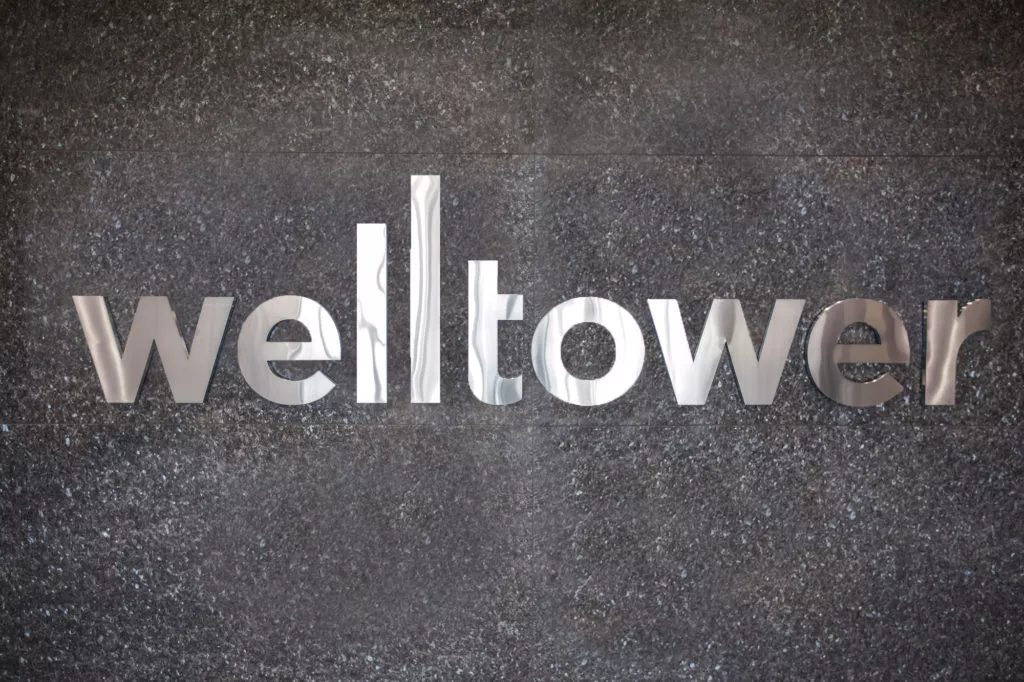Welltower (NYSE: WELL) spent the second quarter of 2019 improving its liquidity position in response to the coronavirus pandemic, thanks in part to $1.3 billion in divestitures of senior housing and outpatient medical assets.
Occupancy declines in its senior housing segment, meanwhile, appear to be stabilizing nearly three months into lockdowns across the country.
The positive news has the Toledo, Ohio-based health care real estate investment trust (REIT) positioned to come out of the gates quickly as the country gradually reopens, allowing it to capitalize on pent-up demand for senior housing and seize new opportunities as they present themselves, executives believe.
“We put ourselves in a position to control more of our own fate. As the business stabilizes, this very well could mean that we have the ability to go back on the offensive and be opportunistic, and it certainly takes a lot of the tail risk away from how [Covid-19] and how the economy continues to progress,” Executive Vice President and CFO Tim McHugh said Wednesday at Nareit’s REITweek Virtual Investor Conference.
Welltower’s senior housing segment includes over 1,300 communities in North America. To date, 87% of its properties have reported no positive Covid-19 cases on a two-week trailing basis; 8% have reported one to two cases per community; and 5% reported three or more cases.
Senior housing turns a corner
Like the industry at large, Welltower is grappling with pressures from the pandemic, notably occupancy declines and increases in labor and personal protective equipment (PPE) expenses.
The REIT incurred $18 million in Covid-related property level expenses in April. Shelter-in-place orders and labor shortages impacted the ability of Welltower’s roster of senior housing operators to fully staff buildings, requiring operators to pay up to 1.5 times to 2 times in hazard and bonus pay in many markets. Many operators, however, are reporting a slowdown in hazard pay from the April peak.
Occupancy across Welltower’s senior housing operating (SHO) portfolio, meanwhile, stood at 81.1% as of May 29 — a 150 basis point decline since May 1 but a 90% improvement over April’s decline.
Moreover, the occupancy decline slowed considerably during the final two weeks in May with only a 50 basis point drop for the two week period ending May 29, versus a 100 basis point decrease for the previous two-week period.
The assumptions the REIT shared in its May business update remained unchanged. SHO occupancy is still expected to decrease between 500 and 600 basis points in the second quarter of 2020, from where it was on March 31. Revenue per occupied room (RevPOR) is expected to be flat throughout the quarter.
Total senior housing expenses are expected to increase approximately 5% in the second quarter and remain elevated throughout early summer, before beginning to normalize.
Welltower collected 95% of rent due in May across its triple-net portfolio of senior housing, health system and long-term care communities, and operational headwinds in its triple-net senior housing assets are comparable to its SHO portfolio.
Once shelter-in-place orders are relaxed and communities begin to re-open, Welltower Chairman and CEO Tom DeRosa believes the REIT’s operators will be poised to tap into pent-up demand. He noted that 80% of an individual’s health and wellness is predicated by social determinants such as where the person lives, nutrition, social interaction, transportation and safety. Health care, clinical services, procedures, and pharmaceuticals account for the remaining 20%.
“For many seniors who live alone and are isolated, maintaining these elements of daily living are challenging under the best of circumstances and have been exacerbated by Covid-19,” he said.
Welltower’s hands-on approach with operators and forays into health system partnerships, such as its joint venture with Philadelphia-based Jefferson Health, are intended to integrate health and wellness into a senior care setting, thereby improving the livelihoods of its residents.
This shows the long-term value of senior housing — something DeRosa noted during a March investor presentation at the Citi 2020 Global Property CEO Conference in Hollywood, Florida.
Back then, there were only 91 positive Covid-19 cases in the U.S. and six deaths. As of June 3, there are nearly 1.9 million cases across the country, and over 108,000 deaths.
“Our initiatives with payers, health systems and technology companies have demonstrated that this connection can improve health outcomes and lower health care costs. However, because of Covid-19, what may have sounded like a nice idea, to some, is now an imperative,” he said.
More cash on hand
The dispositions announced earlier this week — a $300 million sale of six senior housing assets at the end of May along with a $1 billion portfolio disposition of seven senior housing and 29 outpatient medical properties — was done with an eye towards shoring up Welltower’s capital position and ensuring the REIT can strike when acquisition opportunities arise.
The transactions were initiated and completed in less than 45 days, a timeframe DeRosa called “herculean,” particularly during the current economic climate. It also reaffirms Welltower’s commitment to making data-driven decisions for the overall health of the company.
“While these decisions can be difficult to swallow in the near term for our various stakeholders, they have been made in the best long-term interests of our enterprise,” he said.
Welltower expects to generate $1 billion in proceeds from the two transactions, which will be added to $4.6 billion in near-term liquidity and another $588 million in near-term uses, Vice Chair, COO and Chief Investment Officer Shankh Mitra said.
“This puts us in a very, very good position with lots of arrows in our quiver. We’re starting to see the margins of real investment opportunities that can be very accretive from a long-term value perspective. And we do believe that the balance sheet and the liquidity that we have today help us access those acquisition [opportunities] that [during] a normal time will not be available. We think this time will give us a tremendous opportunity to create long term shareholder value,” he said.


